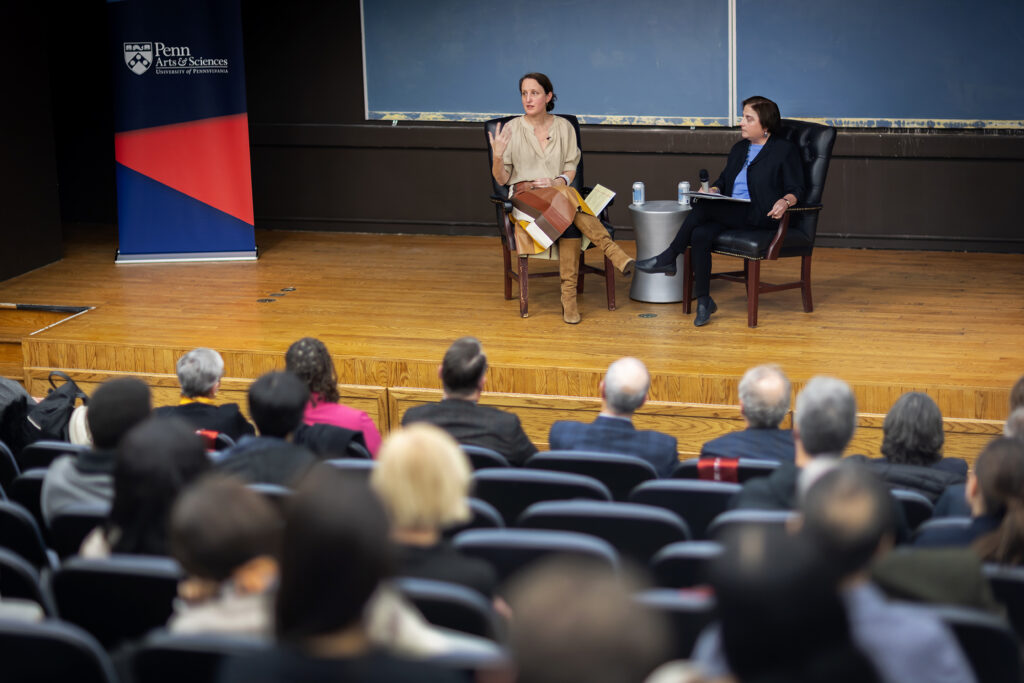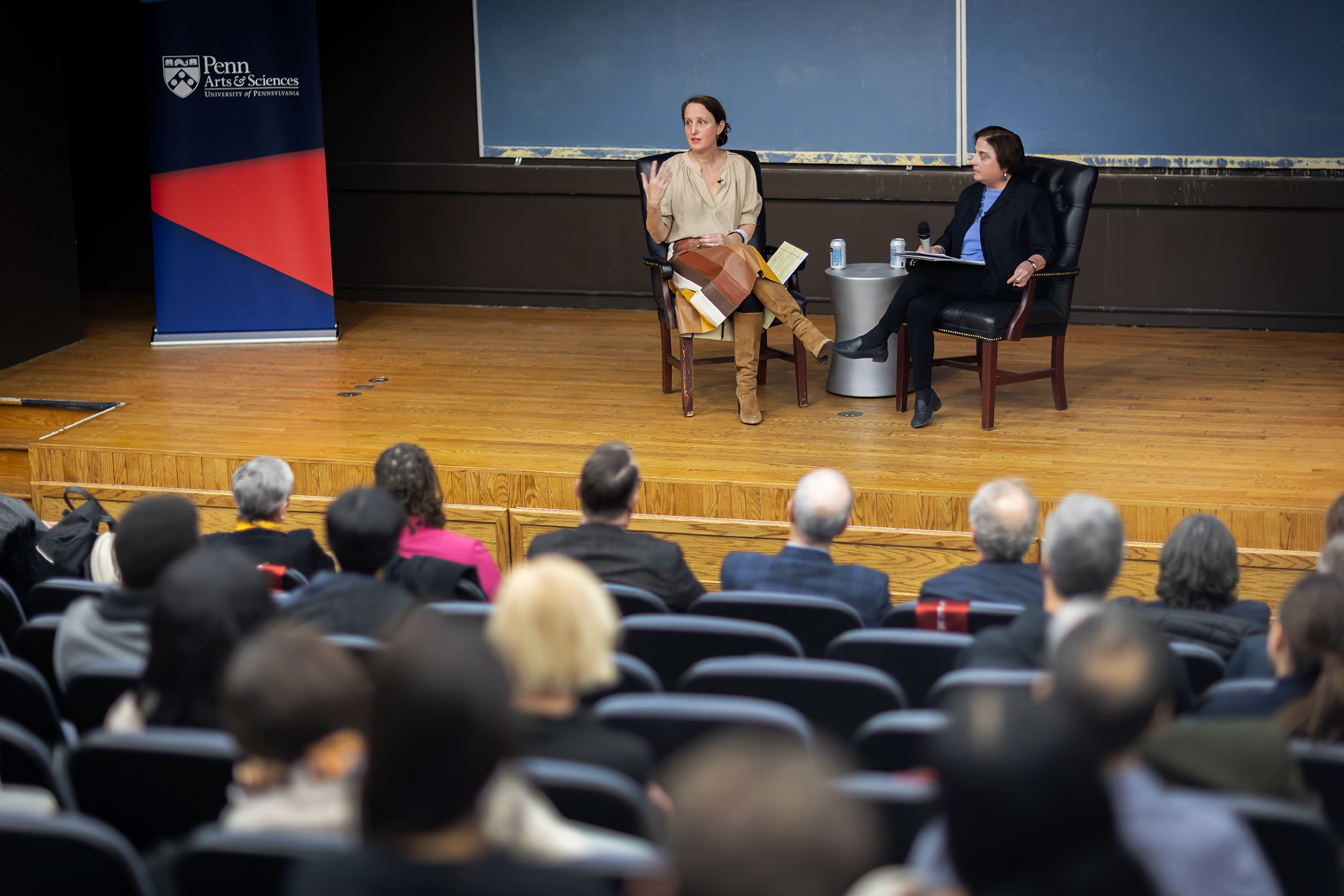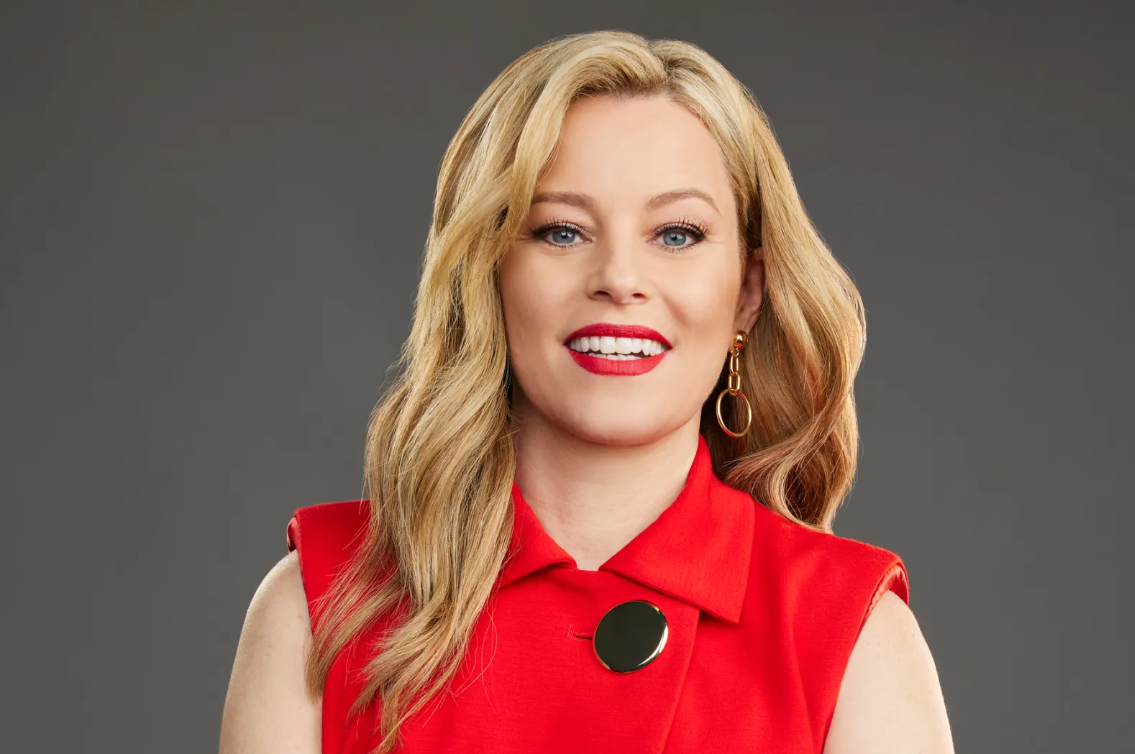
By Glynn Boltman
Photo credit: Penn Today / Eric Sucar
Whether or not you believe free speech is alive and well on Penn’s campus, the debate about its future certainly is. Penn has received no shortage of public attention for their treatment of the Palestinian Writes Festival and the stream of protests, counter-protests, letters, and ultimately, resignations that followed the October 7th Hamas attack on Israel. Student, faculty, and administrator responses to either event have become fodder for public critique, sometimes putting the safety of Penn’s community members at risk.
The University administration’s response to the attacks has been almost as equally centered on the issue of free speech as it has on the issues of antisemitism, islamophobia, or the political conflict within the Middle East. This was the case of the inaugural event for “Living the Hard Promise,” the University initiative to engage members of the campus community in empathetic dialogue and “inform our understanding of today’s most pressing issues.”
Student groups at Penn Law and within the undergraduate Political Union held their own events, inviting professors Cass Sunstein and Ian Lustick, respectively, to weigh in on the University’s responses and obligations toward free speech. Lustick is a Professor Emeritus of Political Science at Penn, specializing in the modern history and politics of the Middle East. Sunstein is the founder and director of the Program on Behavioral Economics and Public Policy at Harvard Law School and is known nationally for his writing, including his 1995 book, Democracy and the Problem of Free Speech.
In addition to putting forward different views on what kind of speech should be allowed, these conversations expose the values of students, administrators, and faculty as they negotiate Penn’s complex relationship with politics and public discourse. While public rhetoric may seem divisive, these debates demonstrate that there is nuanced and civilized conversation on campus that emphasizes values of citizenship and academic rigor.
The speaker events were in agreement that Universities can regulate free speech which produces lawlessness, creates or threatens imminent violence, or attacks someone’s character. Penn Today reported on the comments of Professor Sophia Rosenfeld, chair of Penn’s History department and a scholar of intellectual history. During the Living the Hard Promise event, Rosenfeld made the argument that these restrictions on expression make “free speech absolutism” a misnomer. “What we are debating,” she continued, “is where the lines are.”
Beyond First Amendment rights, most speakers agreed that Penn’s duty as an educational institution gives it additional obligations. Faculty were not in agreement, however, about what those obligations are.
Cass Sunstein asserted that schools can regulate speech if it’s essential to their educational mission during a Penn Civil Discourse Society event hosted by Penn Law. Ian Lustick, in the separate undergraduate forum went on to define the responsibilities of the university in public space: to ask questions, help people make better arguments, and question “truths” of the world that are taken for granted. Rosenfeld agreed that questioning and building skills is a key part of the University’s mission but also emphasized its responsibility to protect and disseminate knowledge.
The misalignment between Penn faculty in this case is not isolated to Lustick and Rosenfeld’s statements, placed side by side. Penn’s branch of the American Association of University Professors further asserted that Interim President Larry Jameson overstepped by condemning a political cartoon published by a professor in the Annenberg School for Communication. The AAUP responded with a letter to Penn administrators, characterizing Jameson’s statements as “dangerous and unwarranted.” The letter emphasized that “extramural speech,” in which an academic writes as an individual rather than an educator, should be protected. They further critiqued Jameson’s statements for generating threats of violence against Booth.
The final claim is reminiscent of the congressional hearing in which Representative Elise Stefanik (R-NY) claimed that threats of violence, specifically calls for the “genocide of Jews” had inundated campus protests in support of Palestine, threatening the safety of Jewish students. The hearing was a key event in the resignation of former president Liz Magill, which in turn prompted concerns from students about partisan and donor control of the debate over free speech on campus.
Since that point, fact has featured frequently in student and faculty discussions of free expression. The clearest example is the pointed labeling of the recent occupation of Houston Hall as a teach-in, emphasizing events and speakers who approached the conflict in Gaza from a variety of lived experiences.
As a scholar of Jewish and Islamic history, Lustick advocated for the stance that institutions should be wary of labeling statements as “unequivocally false.” At the beginning of his address to students, Lustick spelled out the differences between the process of building and tearing down arguments that he characterized as a natural part of academia from imposing a rule.He pointed out that any time there’s a focus on “facts” within a public debate, there has to be an arbiter of what’s true and what isn’t. He said that having a chair like that at a university would be like “the pope ruling the universe.”
Rosenfeld proposed a rule which differentiated between “live” discussions that make up society’s public debates, and other debates that have been closed to further examination. When topics aren’t live, she argued, it’s only productive to view the issue from a historical perspective. Lustick agreed with her approach to historical examination, without making the distinction between “live” and “dead” debates. He focused on how studying views that are problematic, such as why people ought to be enslaved (which he viewed as subject to debate in certain contexts across the world today), can help inform us about viewpoints that pose a threat to people’s values. This information, he argued, is central to understanding what motivates people.
Further key differences between the concerns of students and faculty at the events were exposed during the questions received by Rosenfeld and Lustick. In both cases, students first raised concerns about how speech should be held responsible for perpetuating harm.
This reflected a different pattern at Penn, which has frequently seen arguments that warn against protection of speech and argument when it has the potential to minimize the value of “protecting the sentient existence of another human being.” This second view, developed by Noor Chafouk in her opinion column of the Daily Pennsylvanian, which argues that “to assume that all and every form of speech must be protected assumes that we live in, and come from, a world devoid of historical systemic subjugation.”
Lustick proposed that students protest against views which are uncomfortable, or refuse to listen to arguments we find personally abhorrent. Rosenfeld qualified that those protests shouldn’t drown out the ability of others to have their voices heard, however. The “heckler’s veto” has received special attention in speech discussions since the 2022 first-year convocation ceremony in which protestors interrupted Liz Magill’s speech, which, ironically, dealt with the topic of productive disagreement.
The speakers’ final comments gave students suggestions for how individual conversations could promote free speech productively. Lustick said that positive university culture asks all members of the community, regardless of their political background, to think carefully about their words and whether they are proud to be attached to a platform. He suggested that universities should also promote conversations that present evidence and de-emphasize feelings.
Rosenfeld, as she discussed skills for positive debate, noted that even within safe spaces, “we have to live with uncomfortable ideas.”
The conversation on free speech makes it obvious that it has become hard for us to reach a consensus as students have continued to express their discomfort. However, its existence is also evidence that the spirit of academic debate and dialogue that the participants value is alive and well.
Glynn Boltman is a sophomore in the College of Arts and Sciences studying Political Science from Reno, NV. Glynn is also the Opinion Editor for The Pennsylvania Post. Her email is gboltman@sas.upenn.edu.




